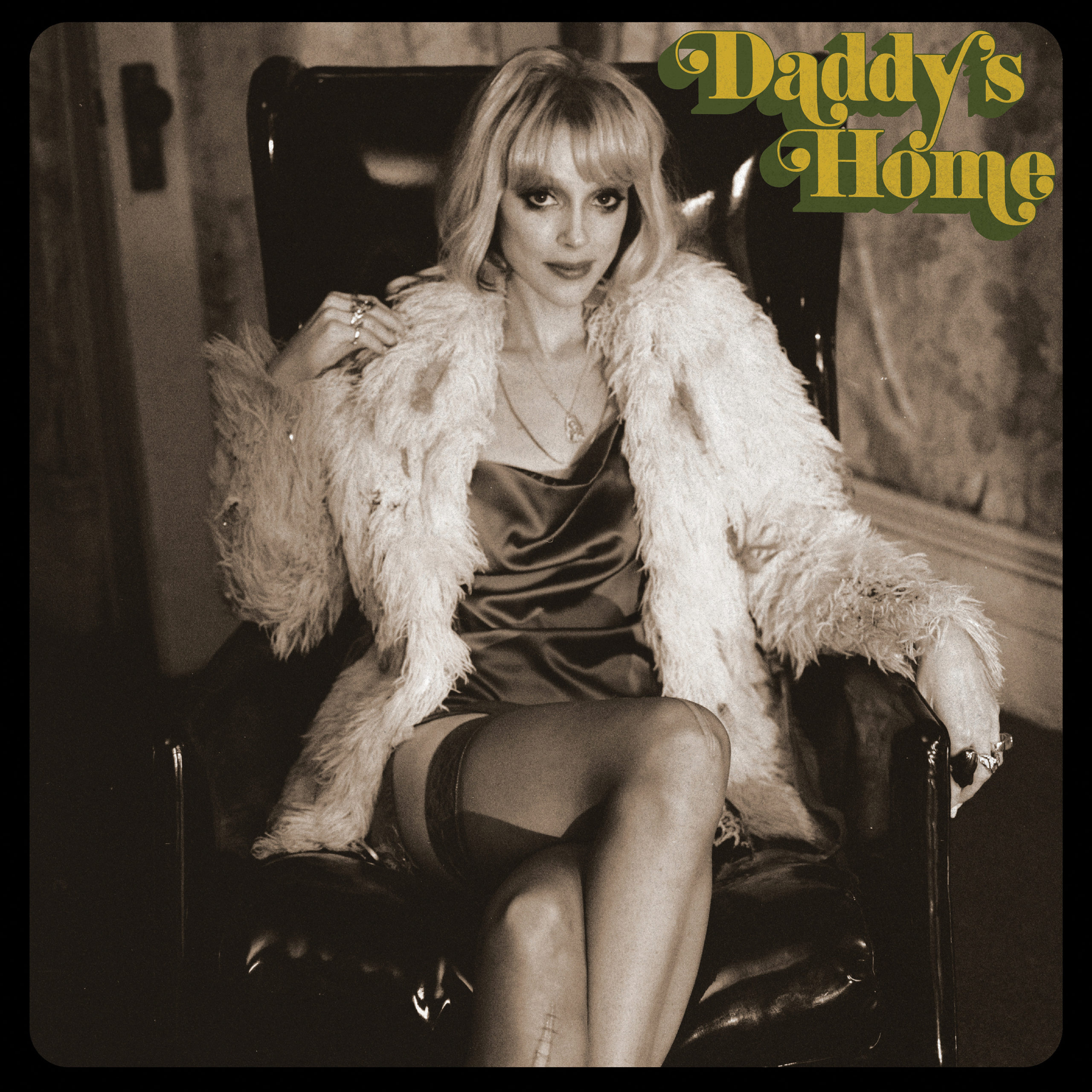After a four-year hiatus and a marketing campaign saturated with vintage imagery, Annie Clark (known as St. Vincent) has released her sixth album “Daddy’s Home.” St. Vincent’s previous music — experimental, robotically-inclined, virtuosic and verging on grotesque — has often stood apart from her contemporaries or even musicians of previous eras. Unlike her other five records, “Daddy’s Home” puts Clark in conversation with past artists, predominantly from the 1970s, to create a wholly redefined sound and persona. But if there is anything that makes this album consistent with the rest of St. Vincent’s work, it is this: It surprises.
The opening track and first single “Pay Your Way in Pain” begins with a Vaudevillian piano before swerving into a synth-heavy funk beat distorted just enough to feel recognizable to St. Vincent fans. It’s what we’ve all been waiting for, and Clark plays this up. “The show is only gettin’ started,” she sings in the second verse. Yet there is also some insecurity hidden by brazen beats and vocals as Clark asks, “Do you remember me?” Sporadic elements thrown into the song — a rattling percussion instrument, a single, short glissando — seem desperate for attention, desperate to be remembered.
As the song nears its end, a mixture of synth, guitar and assorted noise accompanies background vocals which pepper the song with the words “Pay, pain / Pray, shame” and “What do you want? What do you want?” A staticky voice reaches out from this discord, singing mournfully: “I wanna be loved.” Thus we begin “Daddy’s Home” with an anthem of pathetic performativity — a self-aware, self-deprecating cry for approval.
Clark’s second single off the album, “The Melting of the Sun,” brilliantly refines the album’s direction and clarifies Clark’s relationship to her re-vamped St. Vincent persona. Just as Clark’s music often contains a pivotal sonic moment midway through the song, in “The Melting of the Sun,” Clark’s lyrics create a crisis of identity at the halfway point. She situates herself among the struggles of past female musicians from “Saint Joni” Mitchell to “Proud Nina” Simone asking, “So who am I trying to be? / A benzo beauty queen?”
By calling out the persona behind the album, Clark shows she’s in on the joke. Everything, from the album’s intense marketing campaign to the 1970s funk-influenced production, tackles the theme of finding truth in the space between authenticity and façade. Past influences infiltrate her music, pushing the line between old and new. “…At the Holiday Party” has tinges of Joni Mitchell’s “A Case of You” with its light ukulele-esque strumming, and “Live in The Dream” echoes Pink Floyd’s “Breathe (In the Air)” with its syrupy slide guitar and mirage-like vocals. Clark lets us know that sometimes we need performance to get at reality, singing, “To tell the truth, I lied.”
But St. Vincent’s music has never seemed concerned about assuaging or pleasing listeners, and Clark is at her best when she’s most unapologetic. One of the most memorable songs, “Down,” is a powerhouse take on a revenge ballad in which a woman gets back at an abuser. In opposition to its title, “Down” unfolds in sonic steps that build up in intensity until we reach a funky chorus with a grooving, driving guitar riff. Other highlights include the twangy “Down And Out Downtown” and brass-backed “My Baby Wants a Baby.”
Besides the strength of the individual songs, though, it’s hard to say whether the tight thematic focus of the album as a whole enables or inhibits its success. The narrative three-act structure defined by the humming interludes seems arbitrary and doesn’t do much to create cohesion in the listening experience. Their inclusion suggests that we should listen to the album in order, but when we do we’re not exactly sure why the order matters.
Yet through any confusion, the album is compellingly conscious of its flaws and lineage. In “My Baby Wants a Baby,” Clark sings, “I’ve got your eyes and your mistakes,” and those lyrics lucidly encapsulate this album’s tricky inheritance — how it takes both the innovative and complicated parts from St. Vincent’s oeuvre, personal life and past artists.
Upon first listen, “Daddy’s Home” isn’t tonally what you’d expect from St. Vincent. Her past albums are often a mix of songs that are pleasing to listen to, and songs that, well, are not. Tracks like “Rattlesnake,” “Bad Believer” and “Chloe In The Afternoon” are decidedly grating on the ear, and many others include long instrumental interludes of robotic dissonance.
“Daddy’s Home” doesn’t have this; most of it is decidedly ingratiating to the ear — pleasant and catchy. But that is not to say Clark’s new sound lacks the virtuosity of her past music. Ultimately, “Daddy’s Home,” represents an ambitious project of self-consciousness and sonic complexity that is sure to delight longtime fans.
